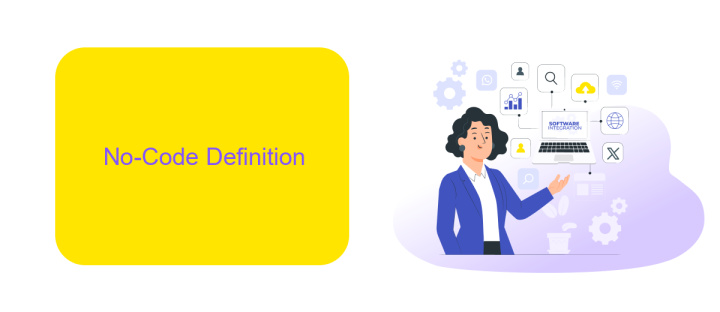What is Low-Code No-Code
Low-Code No-Code (LCNC) platforms are revolutionizing the way software is developed by enabling users to create applications with minimal or no coding experience. These platforms provide visual development environments, making it easier for business professionals and developers alike to build, test, and deploy applications quickly. This article explores the key features, benefits, and potential challenges of LCNC platforms.
Low-Code Definition
Low-code development refers to a software development approach that requires minimal hand-coding, allowing developers to create applications more quickly and with less effort. It leverages visual interfaces with simple logic and drag-and-drop features, making it accessible even to those with limited programming knowledge.
- Visual development tools
- Pre-built templates and components
- Drag-and-drop interface
- Automated code generation
- Integration capabilities
One of the key advantages of low-code platforms is their ability to integrate with various services and APIs, simplifying the process of connecting different systems. For instance, ApiX-Drive enables seamless integration between numerous applications without the need for extensive coding. By leveraging such tools, organizations can accelerate their development processes, reduce costs, and improve overall efficiency.
No-Code Definition

No-Code platforms empower users to create applications and automate workflows without the need for traditional programming skills. These platforms typically feature intuitive drag-and-drop interfaces, pre-built templates, and visual development tools that simplify the creation process. By removing the complexities associated with writing code, no-code solutions enable business users, marketers, and other non-technical professionals to build functional applications quickly and efficiently.
One significant advantage of no-code platforms is their ability to integrate with various services and applications seamlessly. Tools like ApiX-Drive facilitate these integrations by providing user-friendly interfaces to connect different software systems. With ApiX-Drive, users can automate data transfers, synchronize information, and streamline operations across multiple platforms without writing a single line of code. This capability not only enhances productivity but also allows businesses to adapt and scale their digital solutions with ease.
Benefits of Low-Code No-Code

Low-Code No-Code platforms have revolutionized the way software applications are developed, offering numerous benefits to businesses and developers alike. These platforms enable users with little to no coding experience to create applications, significantly reducing development time and cost.
- Faster Development: With pre-built templates and drag-and-drop functionality, applications can be developed much quicker compared to traditional coding methods.
- Cost Efficiency: Reducing the need for specialized developers lowers the overall cost of application development and maintenance.
- Accessibility: Non-technical users can contribute to the development process, democratizing innovation within the organization.
- Flexibility: These platforms allow for rapid prototyping and easy adjustments, enabling businesses to adapt quickly to market changes.
- Integration Capabilities: Services like ApiX-Drive facilitate seamless integration with various third-party applications, enhancing the functionality of Low-Code No-Code solutions.
By leveraging Low-Code No-Code platforms, organizations can accelerate their digital transformation efforts, empowering teams to innovate without the bottlenecks of traditional software development. As a result, businesses can stay competitive in a rapidly evolving technological landscape.
Use Cases for Low-Code No-Code

Low-Code No-Code platforms are transforming the way businesses approach software development, enabling users with little to no coding experience to create applications and automate workflows. These platforms have a wide range of use cases that can benefit various industries and departments.
One of the primary use cases is rapid application development. Businesses can quickly prototype and deploy applications to meet their immediate needs without waiting for traditional development cycles. This is particularly useful for small to medium-sized enterprises that need to stay agile and responsive to market changes.
- Automating repetitive tasks and workflows
- Building internal tools and dashboards
- Creating customer-facing applications
- Integrating multiple software systems
- Developing mobile applications
Another significant use case is integrating various software systems. Platforms like ApiX-Drive facilitate seamless integration between different applications, allowing businesses to automate data flow and improve operational efficiency. This is especially valuable for organizations looking to streamline their processes and reduce manual data entry.
- Automate the work of an online store or landing
- Empower through integration
- Don't spend money on programmers and integrators
- Save time by automating routine tasks
Future of Low-Code No-Code
The future of Low-Code No-Code platforms is poised for significant growth and innovation. As businesses increasingly seek to accelerate their digital transformation, these platforms offer a streamlined solution for developing applications without extensive coding knowledge. This democratization of technology enables a broader range of individuals to contribute to software development, fostering creativity and speeding up project timelines. With advancements in AI and machine learning, Low-Code No-Code platforms are expected to become even more intuitive and powerful, further reducing the barrier to entry for non-technical users.
Integration capabilities will also play a crucial role in the evolution of Low-Code No-Code platforms. Tools like ApiX-Drive, which facilitate seamless integration between various applications and services, will become indispensable. By simplifying the process of connecting different software systems, ApiX-Drive and similar services will enhance the functionality and versatility of Low-Code No-Code solutions. This will enable businesses to create more complex and robust applications, driving innovation and efficiency across industries.
FAQ
What is Low-Code No-Code?
Who can benefit from Low-Code No-Code platforms?
What types of applications can be built using Low-Code No-Code platforms?
How do Low-Code No-Code platforms handle integrations with other systems?
Are Low-Code No-Code platforms secure?
Time is the most valuable resource in today's business realities. By eliminating the routine from work processes, you will get more opportunities to implement the most daring plans and ideas. Choose – you can continue to waste time, money and nerves on inefficient solutions, or you can use ApiX-Drive, automating work processes and achieving results with minimal investment of money, effort and human resources.


